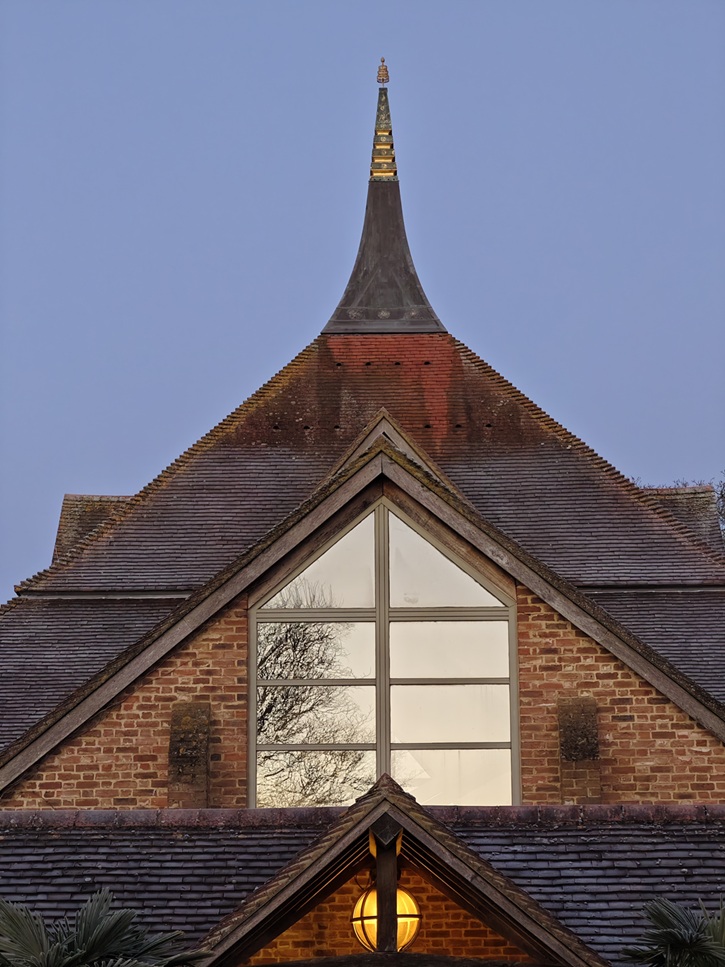Audio talks
Let's See What Arises

We are a group of lay people from the Theravada Forest Sangha Tradition. With the blessings of the ordained Sangha at Amaravati Buddhist Monastery we organise monthly day retreats and weekly morning meditation. Events are led by experienced lay Buddhist teachers.
Read MoreAmaravati Lay Buddhist Association. ALBA also evokes ‘albion’ – which has a nice traditional ring of old England about it – and also means ‘white’ – which is how lay Buddhists are traditionally dressed, and also ‘dawn’ in Italian and Spanish.
Upasika (and its female variant upasaka) are Buddhist scriptural terms referring to sincere lay followers of the Buddha. ALBA is run by laypeople with the blessing of the ordained Sangha, and runs a series of days of practice and short retreats at Amaravati.
Who we are

ALBA started around 1994 at Amaravati Buddhist Monastery in Hertfordshire, England, and was initially called the Upasika Training. Since then our name has changed, first to Amaravati Upasika Association and then to Amaravati Lay Buddhist Association. Upasika (and its female variant upasaka) are Buddhist scriptural terms referring to sincere lay followers of the Buddha. Wanting to have a more understandable and less intimidating title, we chose – ALBA – Amaravati Lay Buddhist Association. ALBA also evokes ‘albion’ – which has a nice traditional ring of old England about it – and also means ‘white’ – which is how lay Buddhists are traditionally dressed, and also ‘dawn’ in Italian and Spanish. ALBA is run by laypeople with the blessing of the ordained Sangha, and runs a series of days of practice and short retreats at Amaravati.
ALBA developed as a ‘virtual’ community for lay Buddhists who visit Amaravati Buddhist Monastery. Amaravati is a popular and highly respected resource for Buddhist teaching and retreats. Over time, non-ordained practitioners who had been visiting and supporting Amaravati, wanted to connect with like-minded people – those who lead complex lives in the world of work, relationships, and family, and who practice core Buddhist teachings and who not only wish to feel confident and fully supported in this enterprise, but wish to offer their experience to others.
Over time, a flourishing community of practitioners has become established around regular ALBA days of practice and retreats. The ALBA community has been involved at various times with a wide range of Amaravati activities, from Kathina and Wesak, and the Saturday meditation workshops, through to representing the Amaravati Sangha at educational events, SACRE meetings and Buddhist umbrella groups.
Those in ALBA recognise that the vast majority of those who are inspired by Buddhist teachings practice these in their daily lives. We believe it important to maintain a strong dialogue between the small number of practitioners who do ordain, and the majority who do not. And to recognise that there is an ebb and flow between these groups with no hard boundaries.
From a traditional viewpoint one might regard ALBA as giving modern substance to the lay community described in early Pali texts as part of the fourfold assembly (or sangha) of bhikkhus, bhikkhunis, lay-men and lay-women practitioners. What unites all – regardless of their lifestyle – is a commitment to the path of awakening.
We maintain a constitution which describes our basic purpose and aims, our processes, and our Committee roles. View the latest Constitution online or download a pdf copy.
Members of the ALBA committee with Ajahn Amaro, Abbott of Amaravati Buddhist Monastery on ALBA’s 25th Anniversary – Nov 2019. Photo credits to Neil Pollick.
Buddhist practice
We regard the organisation and participation in all our activities, including our business meetings, as part of our practice, seeking always to apply Buddhist principles. This is our overriding principle. Committee membership Those who volunteer their time and expertise to the Committee and ALBA, do so from a motive of generosity, a key practice on the Buddhist path. We welcome help, of whatever scale, from all who wish to offer their support to the Committee. The Committee has fifteen full member positions, and effectively an unlimited number of associate roles. Committee roles We adopt a flexible approach to Committee roles which reflects both the skills offered and our wish to provide opportunities for those who are interested. We aim to share tasks as equitably as possible to avoid overloading one or two members. Development of skills We encourage members to develop and use their skills and expertise to further the aims of the association. This encouragement may include constructive feedback, mentoring (by agreement), and attendance at workshops, interfaith or other UK Buddhist organizations, and courses. Inclusivity We actively encourage people to join the Committee and to play a part in organising and leading days of practice and retreats, according to their willingness and ability, without putting pressure on them to do so, irrespective of gender, race, disability, sexual orientation or social background. We consider whether the composition of our Committee reflects the make up of our membership, and bear this in mind when a vacancy arises. Our meetings are open (subject to prior notification) to any ALBA member. Consensus We rarely use voting to reach a decision, always preferring consensus and agreement. In arriving at consensus, it is important that everyone’s view is heard. It is natural and healthy that not everyone will agree, and may never see things the same way. However, we have found that a willingness to find a common way forward will overcome differences and a consensus can be found. Mutual support and respect We try to work together both as a Committee and as a coherent and healthy community. Leaders seek feedback from their events. We are willing to offer correction and be corrected. We welcome constructive feedback on any publication, minutes, or our web site. At the start of our meetings we consider Members who are suffering or in difficulty. Consultation We try to consult wherever possible, rather than act independently. We delegate authority where appropriate. We ensure that proposed actions on behalf of the Committee are discussed or communicated within the Committee beforehand. Any ALBA document or information is circulated to all Committee members. We gain prior agreement for any changes which may impact the monastic Sangha (for example changes of name, new web groups, or publications which use the ‘Amaravati’ name). Communication We aim to provide full information on our events and programme via email bulletins, this web site, posters, and occasionally by post. Affirming lay-practice We recently decided to draft a short ‘affirmation of lay-practice’ to inspire and encourage those following the path of awakening as lay people. An affirmation of lay-practice We affirm the dignity and validity of Lay-Buddhist practice. With the probability of relationships, partners, and families, and the need to take full responsibility for livelihood for oneself (and possibly others), the path of the lay-Buddhist is a rich and challenging one. It requires both psychological and spiritual maturity and the cultivation of a broad range of skills. We have found that it offers a fertile context within which to explore and develop the full range of Buddhist virtues, insights and practices encompassed in the four ennobling truths and the eightfold path, including self-discipline, an awareness of dukkha (suffering), as well as the cultivation of generosity, compassion, kindness, patience, sympathy and equanimity. We are confident that the cultivation of virtue and wisdom as taught by the Buddha leads to the realisation of enlightenment.
Amaravati is a Theravada Buddhist monastery situated at the eastern end of the Chiltern Hills in south-east England. It is near the Hertfordshire village of Great Gaddesden. The nearest towns are Hemel Hempstead and Berkhamsted.

ALBA recognises its responsibilities under the General Data Protection Regulations. This concerns all the records we might hold with information about you, your address etc.
We are implementing these Regulations in accordance with the following principles, applied as appropriate:

We are grateful to everyone who has generously offered Dana as part of their practice. If you would like to make a donation please follow the link. Sadhu Anumodana for your generosity!
Walks and Retreats
Randula & Martin
Day Retreat - Hybrid
In person & online. You can join one or both days. We are not able to provide overnight accomodation for this retreat.
Photos
FAQ
Reflections and sharing
Audio Recordings
Audio talks

Audio Talks

Audio talks

Contact Us
Amaravati Buddhist Monastery St Margarets Great Gaddesden Hertfordshire, HP1 3BZ England
alba@amaravati.org